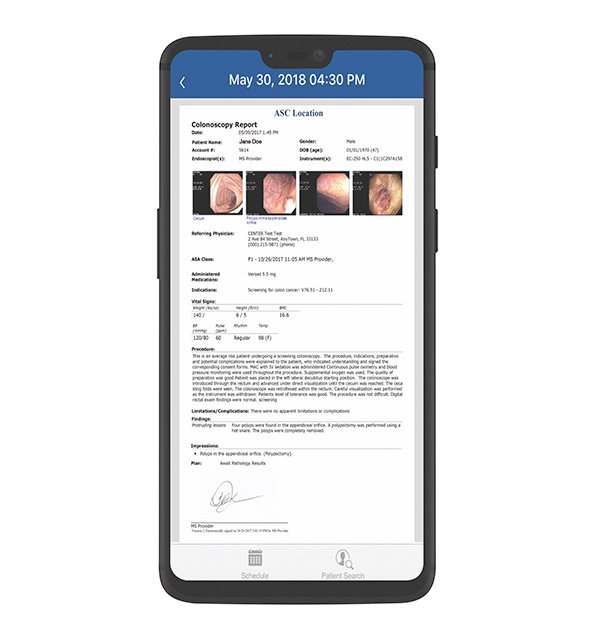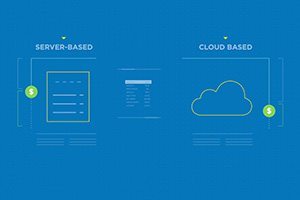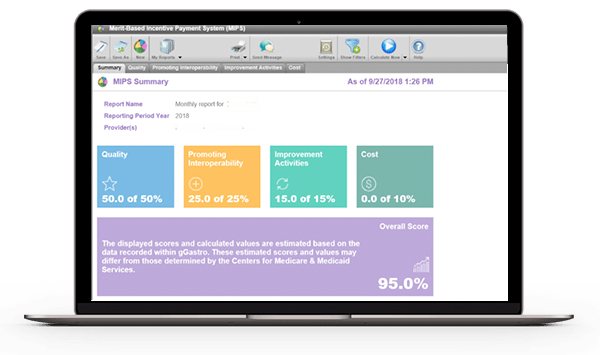Time to Transition to a New Gastroenterology EMR?

Here are some helpful tips to consider when looking for new gastroenterology software
Think of your smart TV, the simplicity of online ordering, ride-sharing apps and even grocery delivery services—friendly technology impacts our lives daily. The notion of such user-friendly technology should also apply to your gastroenterology electronic medical record (EMR) system, too! If your current EMR system has slowed down your workflow and negatively impacted your patient care, and if your frustrations from using it make you want to toss that EMR system out the window, the time has indeed come to make a change.
When evaluating gastroenterology software options on the market, invest time to do your research, as it won’t happen overnight. From my 40 plus years as a practicing gastroenterologist and to now working for a leading healthcare technology company, I have put together the following points for you to consider when evaluating a new gastroenterology EMR system.
1. Make sure the EMR system is gastroenterology-specific.
Taking notes with your gastroenterology EMR system shouldn’t be painful and neither should the billing and coding. It should help and not hinder you. Having GI-specific knowledge built into the software can help alleviate frustrations often heard about EMRs. Gastroenterology diagnoses, orders, maps, findings, billing codes, forms, patient history questionnaires should be available right out of the box.
2. See if the EMR system has gastroenterology ICD-10 codes built in.
The gastroenterology EMR system you select should help make your gastroenterology billing practice more efficient by auto-generating suggested gastroenterology ICD-10, CPT and modifier codes. This can help eliminate the need to use code lookups or conversion tools.
3. Find out more about the vendor’s offerings that extend beyond the gastroenterology EMR system.
In my experience, the ability to work with only one vendor and having a single point of contact for multiple services usually proves beneficial as it helps streamline communications and software integration. For instance, perhaps today you just need a gastroenterology EMR system, but down the road, you may well foresee the need to add endoscopy report writer software, along with gastroenterology practice management, analytics and revenue cycle management. Choosing one vendor that can provide all of the above gastroenterology software solutions can be a wise choice.
 4. Ask about mobile EMR capabilities.
4. Ask about mobile EMR capabilities.
In today’s digital age, we are becoming increasingly connected to our mobile devices both as a provider and as a patient. That being said, look for a company that is forward-thinking and can offer a mobile-friendly gastroenterology EMR system. Mobility can help you access your schedule and patient data outside of your office, at your convenience. Appointments, patient demographics and search results, visit and chart notes, procedures, diagnoses, medications along with clinical, pathology and radiology lab results should all be able to be accessed in the palm of your hand. Dr. Jurkovic of Digestive Diseases Consultants of Illinois spoke to the benefits of mobility and how it’s helped increase the practice’s focus on patient care.
 5. Inquire about cloud EMR or server EMR deployment options.
5. Inquire about cloud EMR or server EMR deployment options.
Depending on your needs as an organization, you may want the flexibility to choose either a cloud- or server-based gastroenterology EMR option. I tend to favor a cloud EMR system for its numerous benefits. You can maintain the same robust functionality of a server-based solution but can help reduce upfront costs and server maintenance concerns or hardware space. Plus, a cloud EMR system can help improve speed, performance and access to your records and patient data. Capital Digestive Care in the Washington, D.C. and metro Maryland area is one such practice that experienced a successful transition from a server to a cloud EMR.
 6. Confirm preparedness for value-based care under the Merit-based Incentive Payment System (MIPS).
6. Confirm preparedness for value-based care under the Merit-based Incentive Payment System (MIPS).
There’s no doubt that the industry has continued its shift to value over volume under MIPS. Make sure the gastroenterology EMR system you select comes with a built-in MIPS solution that can collect your MIPS data within the flow of the exam, track your estimated composite score along with progress on each measure and can report to gastroenterology registries, including GIQuIC.
7. Ask about interoperability with other systems.
Find out if the gastroenterology EMR system you’re interested in has achieved ONC HIT 2015 Edition EHR Certification. That will provide the ability to exchange data with other CEHRTs using the latest and greatest ONC specifications and help complete MIPS Promoting Interoperability (PI) measures. Ask for a comprehensive list of clinical labs, vital sign monitoring devices, endoscopy scopes, radiology clinics, hospital information systems (HIEs), pathology systems and labs that the gastroenterology software can interface with. You’ll also want to learn how this information is exchanged. Is it through HL7 and direct messaging? Is data sent in real time? What are the other types of interfaces used? You’ll want to have the answers to these questions up front so you’re not surprised once you’ve decided to move forward.
8. Learn about the implementation, training and on-going support provided.
One size does not fit all as no two practices operate exactly the same. Look for a vendor and team that will act as an extension of your own. Work closely with them to create a customized plan for your practice for every step of the way—training, implementation, interfaces and on-going support.
9. Research the EMR vendor’s reputation.
First impressions can tell you a lot about a person and the same rings true about a company. Do your research and learn about the company—who founded it, financial stability, mission, staff, client-base, etc. Meeting potential EMR vendors at conferences, asking for client references, looking at review sites, press releases and industry articles can give you a glimpse into the companies you’re evaluating and may help influence your choice.
If you’ve tried to make your current gastroenterology EMR system work, but the amount of frustration, added costs and inefficiencies are not worth it anymore, the time may have arrived to consider other gastroenterology EHR and endoscopy report writer (ERW) options. Consider the gGastro® EHR by Modernizing Medicine® Gastroenterology on your shortlist.





